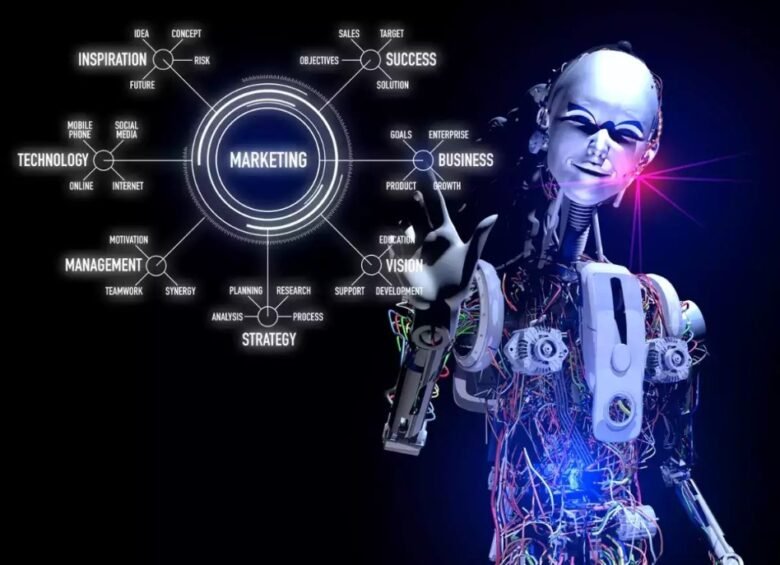Artificial intelligence enabled tools have revolutionized the way we live, work and relate to one another but they are also posing new threats to our online environments. AI is making its way into so many corners of the internet, from churning out fake news over social media to stuffing our inboxes with spam, leading to an accelerating desolation of the internet. In this post, we will discuss how Artificial intelligence is having an impact on the digital environment and simultaneously helping it disintegrate.
Artificial intelligence Exploitation of Social Media:
The social media platform that was initially launched as an ideal community for finding like-mind entities to connect with, now has become the target object of AI-over sold shoes. Automated bots pollute feeds with fake accounts, false information and manipulative content that shape narratives and blunt the free exchange of information. These Artificial intelligence bots are optimizing to literally blow some narratives out of proportion, gaslight the shit out of you and generally cook up crap that is good neither for any given users nor larger sets there of.
Artificial intelligence has also played a role in making wrong information go further afield by identifying and pushing sensationalist content no matter how true it really is as long as they get clicks and engagement. Trust in social media is hurt when the quality of orignated information is grairangep, which makes it difficult to tell real from fake sources.
The Rise of AI Spam in Email:
Email spam is one of those things for decades that has been annoying, particularly in the time of AI-enabled spam. After email filters started to use machine learning techniques, spammers have developed new sophisticated strategies — they now compose more personalized emails that cannot be easily detected by a common filter and perform classic phishing attacks.
The spam emails built by AI no longer resemble the sleazy, obvious scams of past; rather they often present as sophisticated and crisp while unnervlingly personalized to their individual target. Stealing a persons password is very easy, and has made phishing and email based scams more practical, leading to an upsurge in the threat landscape against cybersecurity.
AI in Advertising ─ Hyper-Targeted and Intrusive:
Personalization at any cost: Advertising is getting smarter with AI, driven by the world’s biggest brands, embracing advertising… They are AI algorithms that follow the behavior of each user, gather massive amounts of data and generate extremely specific advertisements that accompany them around the web. While this can help the relevance of ads, it is also disturbingly invasive.
The AI advances that enable hyper-targeting have spawned not only the impression of Big Brother is watching you, but an eerie feeling as if every click, scroll and search enters a chamber in which at advertisers target practice. The broader AI collects more data, the smarter spammy ads become so spammy that at some point it gives less freedom in internet surfing and turns it into a profit-oriented marketplace.
The AI-Generated Content Explosion:
While AI helps to accelerate the pace of content creation and makes it more accessible, it has thinned the context and quality by overloading articles, pictures and videos made from AI litany. Whilst helpful in some contexts, the volume of AI-generated content is now flooding search engines, social media platforms and news outlets.
The more AI generated content starts getting pumped out, the worse information there is available online. All that generic, low-effort content makes it tougher for genuine human-produced, researched research to be discovered creating an overall intellectual devaluation of everything we consume on the internet.
The Future ─ AI and the Erosion of Trust:
Perhaps the most enduring impact of AI seeping into the web will be its corrosive effect on trust. Fake news, AI-generated deepfakes and counterfeit content are more convincing than we think, it is getting harder to distinguish real from fake online. But the trust-eroding potential of such a danger shakes the very basis of what has made the internet a value in itself as both an information and communication source.
However, as AI systems can now replicate human-like conversation this is also emerging as a new concern regarding the genuineness of digital relationships. But as AI technology advances and the line between real interactions and artificial ones becomes increasingly fuzzy, how will users know if what they are experiencing online is genuine?
Conclusion:
While integrating AI into the digital realm has undeniably pushed the envelope in its evolution, it has also perhaps played a key role in its demise. AI bots using social media, the increase of AI-generated content, and more have combined to make the web a very different—and in many ways less reliable—space. In the meantime, we need to recognize these threats in order to overcome them and limit the damage that AI will ultimately do to the internet — ensuring that what was once a ground-breaking platform for real, human interaction remains so.




